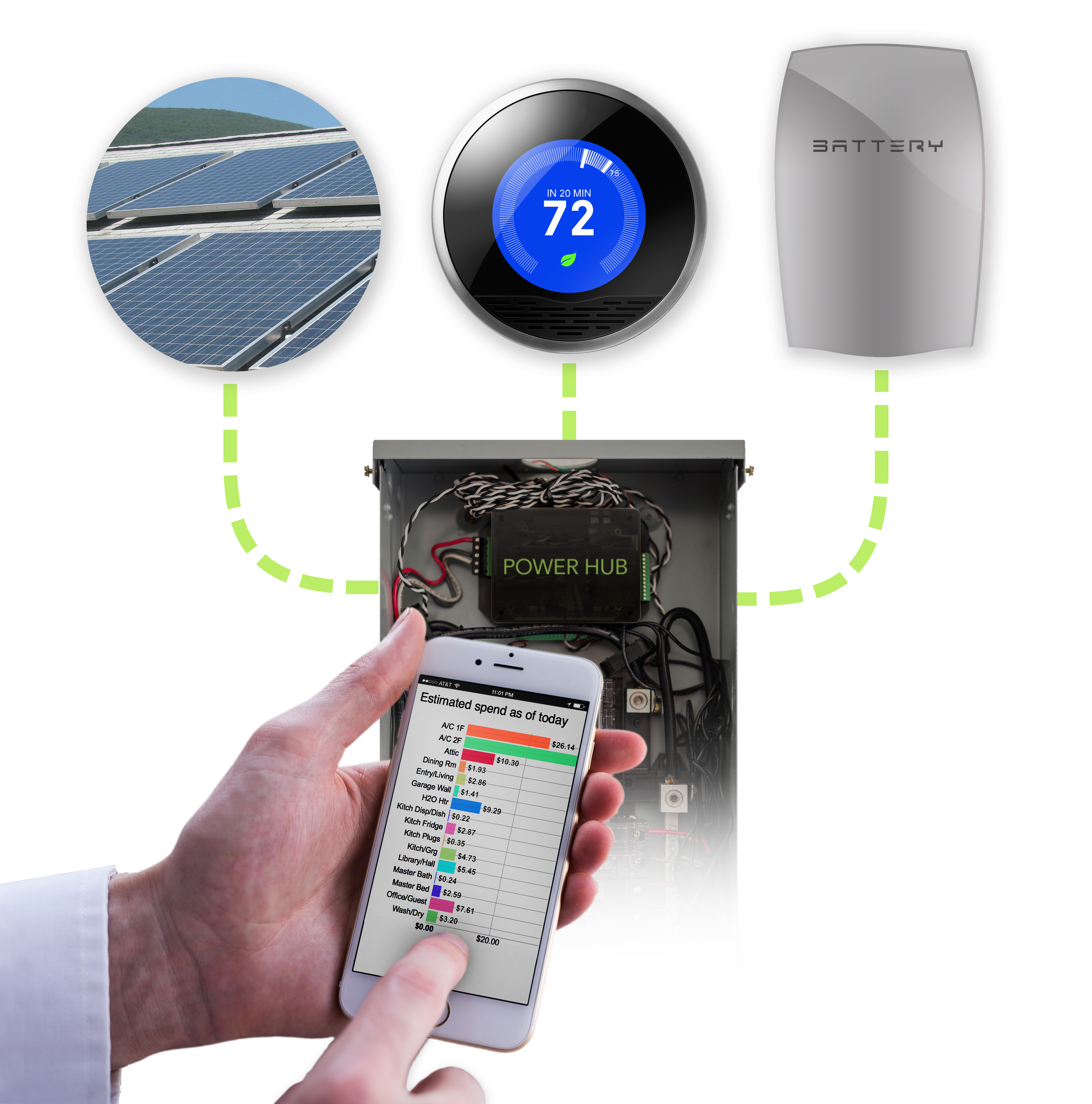Energy Management
The key to aligning the solar, smart home, and electric vehicle industries
 As the solar, smart home, and electric vehicle industries converge, energy management is key to coordinating their respective technologies.
As the solar, smart home, and electric vehicle industries converge, energy management is key to coordinating their respective technologies.
In the last few years, we’ve watched the smart home’s rise from a niche industry to it playing center stage at the consumer electronics show. Similarly, the growth in popularity of electric vehicles has driven most major manufacturers to offer either all-electric, or hybrid options. Not to be outdone, the residential solar industry has evolved past grid parity in many areas with creative financing, which empowers customers to shift their consumption away from local utility providers. Today, each of these industries stand as individual silos, but tomorrow’s energy solutions providers will need to have a comprehensive solution tying these core home energy solutions together in a single energy management package.
Smart Home
The smart home is a noisy place with thousands of connectable devices released each year, and companies announcing new platforms and standards every quarter. At the center of these solutions are three core customer value propositions: improved home safety, convenience, and greater energy efficiency. Motion-activated security systems enable us to feel safer, provide remote viewing via cameras, and let us control access to our homes. Individual smart switches allow remote control of specific outlets and lights tied to a schedule, or phone location (e.g. the porch light is only on when it really should be). Smarter (and more attractive) thermostats have taken center stage by automatically adjusting the cooling/heating schedule to match the homeowners’ actual day-to-day comfort needs. Even home audio is more intelligent, with solutions to control music and TV in any room, from a handheld device. With all of this feverish enthusiasm for home gadgets, which products will truly have market staying power?
The answer lies in energy management solutions which provide long term value for customers in terms of convenience, energy savings, AND safety, by bridging the home’s network of smart devices with its solar system, and electric vehicles. In fact, customers are already looking for this solution; 62% of Americans want a connected device to measure home energy use. [1]
New energy management systems help remind customers if potentially dangerous devices (such as stoves, space heaters, and curling irons) are accidentally left on. They can also identify energy hogs and help consumers balance their energy consumption against their energy production; all while leveraging platforms that add the convenience of remote control.
Electric Vehicles
The electric vehicle industry is also seeing a huge rise in popularity. In 2014, sales of electric vehicles in the US were up over 225% from 2012 [2], despite a reduction in overall gas prices. Consumers are excited about the benefits of electric vehicles including: reduced emissions, lower cost of ownership, and a reduced dependence on foreign oil. Many two-car households find trading in one of their gas vehicles for an electric one a compelling strategy. The electric vehicle is ideal for “around town” errands most commuting, while a gas vehicle allows for longer distance travel. But owners of electric cars still wonder, “How much does it cost to charge an electric vehicle?”
Smart meters lack the sophistication for customers to get a clear answer, but energy management systems solve this problem with the ability to track the individual breakers powering the vehicle charger.
Residential Solar
With 50% year-over-year growth in the US alone [3], the residential solar industry is booming. New business models offer creative financing programs, and a reduction in panel prices have driven greater customer adoption. More clean energy means more significant environmental benefits. Simultaneously, homeowners are gaining a level of independence from their utility providers’ fluctuating costs. Thus, customers need to know their solar systems are working properly. Once again, energy management is a key component to keeping solar owners informed about their solar systems and receiving alerts related to poor performance.
The Convergence
Each of these industries have a common underling thread; a real-time need to know what’s going on with energy in the home. A future where these industries overlap isn’t far away. As these systems become more fully integrated into the home, the energy ecosystem will become more intelligent, and more deeply intertwined.
As these models and systems evolve, solar systems will optimize production to match the consumption of the home, and others will sell energy back to the grid based on utility incentives. Electric vehicles have the potential to be more than just transportation. They embody massive, portable battery systems which can store energy from a solar system during the day, then power the home at night. Integration with a smart home platform enables devices to automatically run or recharge when power is cheap and abundant. Some solutions already pre-cool the home when power is cheaper, but it would be ideal to align that power consumption with a solar system at peak production. Unlocking this potential relies on home energy management systems that are both intelligent and connected.
While each of these industries will likely continue with meteoric growth, obtaining true mass adoption will require integration of best-in-class technologies. Homeowners want a comprehensive solution, enabling them to re-think the ways we generate, consume, and pay for energy. As the solar, smart home, and electric vehicle industries converge, energy management systems will be the key to uniting these technologies to make our homes safer, more convenient, and more energy efficient.
 Erik Norwood is founder and CEO of CURB, Inc. CURB manufactures and sells intelligent energy management systems for residential and commercial applications.
Erik Norwood is founder and CEO of CURB, Inc. CURB manufactures and sells intelligent energy management systems for residential and commercial applications.
CURB, Inc. | www.energycurb.com
[1] Forrester Report 2014: Quick Take: Connected-home news obscures advances in offerings For a Broader audience
[2] Inside EVS Scorecard: http://insideevs.com/monthly-plug-in-sales-scorecard/
[3] SEIA Industry Data 2014: http://www.seia.org/research-resources/solar-industry-data
Volume: September/October 2015









